As a student, I remember having a conversation with my friend in which he complained that Thomas Hardy spent three pages describing a field as if such an act were self-evidently inherently wrong. I waited for further elaboration.
Was there something lacking from said description? Maybe he found Hardy’s prose to be weighty and clunky? But no, this single quantitative declaration served as a complete and self-contained criticism and condemnation in the eyes of my friend. Wessex be damned. Try as I did to appeal to tonality, texture, atmosphere, I was met each time with ‘but three pages? For a fucking field!’.
Putting aside any discussion of the merits or demerits of Hardy as a writer, it highlights a limiting mindset that a great many readers and viewers adopt when they approach fiction – that everything must be solely for the streamlining and advancement of plot.
I suffer a strange paroxysm of irritation whenever I hear people say ‘I start reading a book and if I’m not gripped by the first page I put it down’. I think it echoes a similar sentiment to the one behind the too frequent complaint made of films and novels – that they are too slow – rarely are they branded too fast.
People speak as if there were an optimal cruising speed universally applicable across all works of fiction; no regards given to the particular and specific requirements of the individual work. Plot uber alles is a terribly limiting approach to take when engaging with literature and I’ve always found it better to enter a work without any pre-conceived expectations of where it should take you and by what means.
A rich and detailed environment can be an end in itself, an opportunity for readers to immerse themselves in lush and poetic prose. It can also serve as the very source from which the events and happenings of their stories derive if not their entire meaning then at least much of their animating force.
Think of Cormac McCarthy’s Border Trilogy and how much time is spent walking or riding across those remorseless frontiers.
The striking scene in Cities of the Plain where they lasso the wild dogs is given its visceral and poetic brutality by the harsh ground upon which it occurs, a ground that, over the course of the hundreds of pages previous, we’ve tread upon to the point that its unforgiving severity has almost become a character in itself. To think how much would have been missed if John Grady Cole and Billy Parham had had dirt bikes to ease their journeys.
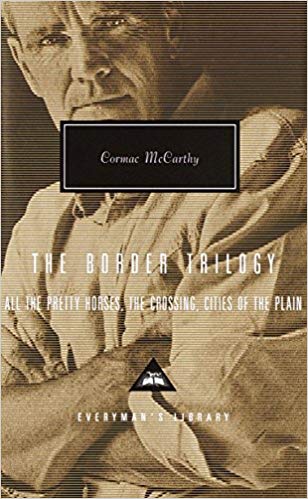
Or to take another, and very different, example, what about something like Haruki Murakami’sTheWind Up Bird Chronicle? Although over the course of the novel we’re taken, via recollections and letters, to Malta and Mongolia and by supernatural means to a strange shadowy limbo world, most of the action centres around modern(ish) Tokyo and, in particular, Toru Okada’s tucked-away back street.
Whilst many key events do take place here, the location is just as important for its sheer normality, offsetting the magical realist elements as Murakami’s pacing allows us the time to settle in properly, sitting on Okada’s shoulder as he makes pasta, taking his home under our own skin which in turn makes the sense of otherness in the shadow realm more profound – like we really have been jolted out of reality.
What I liked most about the novel was its very slowness, being a guest in Murakami’s Tokyo. Location and setting do not always have to be the background for the story; the dynamic can be reversed, the story becoming the vehicle with which we pass through the environment.
This brings me to Galsan Tschinag’s The Blue Sky, a semi-autobiographical account of the author’s childhood growing up on the Mongolian steppes.
The Blue Sky by Galsan Tschinag
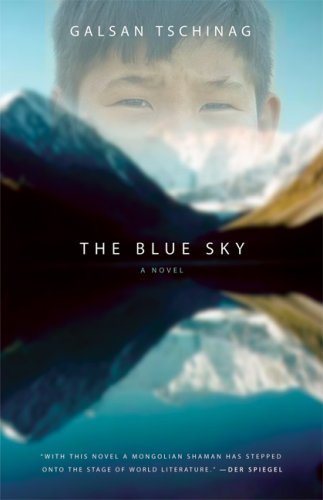
The Altai mountains, the setting for The Blue Sky, take on an omnipresent and seemingly omnipotent role – not only as background but also theme, character, and deus ex machina, to the nomadic families that wander their expanse (the author’s own tribe being amongst them).
It is a paradoxical landscape, simultaneously expansive and confining. As dramatic and wild as it seems – with its open skies and the wolves and horses that run beneath them – as nomads, it is the seasons and the weather that dictate the pace of their lives: where and when they move and whether to feel fear or hope. Our narrator feels a spiritual sense of humbleness in his relation to the world:
“Compared to me, the world was incomparably awesome as it lay in front of me in all its mystery”
Yet at the same time, from up high in the mountains, he can also see to the edges of his world. At one point he describes sitting on a rock watching as his father journey to the big city for business: a journey that, within the context of his nomad’s life, marks a significant absence of a few days, yet he is still able to view his father all the way to the city, even as a tiny dot he is still visible from up high.
It’s a perfect setting to tell a coming-of-age story whilst simultaneously detailing the changing cultural climate of Mongolia. At one point after listening to the grown-ups chat about trade and possessions the narrator muses “Apparently, the older you got, the more things you had to have”, relating not just to his apprehensions as to approaching adulthood; but also the encroachment of the outside capitalist world on the enclosed nomadic society.
Even through his adolescent eyes, we can see the overly powerful allure money can have:
“Money, the colourful square pieces of paper, represented something valuable. I had noticed how carefully Father handled the pieces, and with how much respect Mother looked at them – I could even sense her desire at least once to hold them in her own hands. But Father did not let her have any, he never let them out of his hands.”
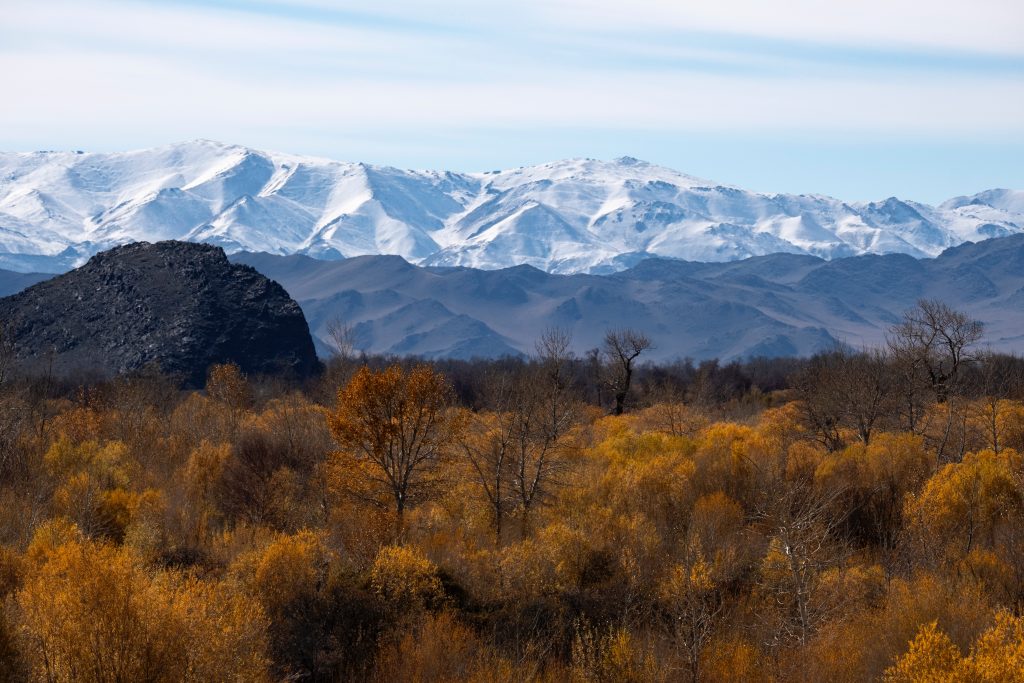
In Chapter three there is an argument amongst the older family members about the continuing need to herd animals in order to survive. At the suggestion that in this modern era “you no longer needed animals” the Father flares up and rages:
“Nonsense…I am somebody, too, and so are all the others, all the people who cling to the herds that have already fed our parents and our ancestors, and that will feed our children and children’s children for all eternity!”
To return to my point about speed and setting, the relatively slow and still pace of the novel reflects the pace of the lifestyle in the steppes which contrasts drastically with the sudden change of the modern world that is beginning to exert its pull even in these remote parts. The setting and the thematics work hand in hand to magnify the threat and show us what stands to be lost.
Tschinag often employs an earthy yet poetic prose, allowing the setting to supply the melody of his descriptions. It leads to delightful similes when he describes a piece of news flying “at the speed of a horse that is whipped non-stop” or his depiction of an injury he sustains and the scar it leaves “the dead skin looked like aspen bark”.
It furnishes the narrator with the conceptual frames he needs to make sense of life, he even thinks in terms of herds and shepherds “One thousand sheep – do you know how many that is? … That’s all the fingers of one hundred people taken together!”.
He clearly feels a great warmth for his homeland and often the novel feels like we are sat listening to a weary traveller at the end of a hard day lovingly recalling his youth and country:
“Most beautiful were the winter evenings. The stove would drone or hum, and the sound would travel and make the kettle resonate while the meat bubbled inside, and the smell would flow from the kettle and would, moment by moment, grow denser until it seemed to send out its tendrils and blend and become one with everything we could see in the flickering light. In these moments I believed I could sense life itself. The sensation was as corporeal and palpable as if I stood in a river and felt the prickling, cooling water on my skin.”
Given the harshness of the winter season in the steppes described by Tschinag, such simple yet intimate scenes of domesticity serve as much as a comfort and respite for the reader as they seem to for the inhabitants of the yurt. Central to the first half of The Blue Sky is the relationship between Tschinag and his grandmother, a woman who in keeping with the wilds of the steppes entered his life riding on horseback chased by a pack of dogs.
As tight-knit and enclosed a family as the nomads already are in their yurt, the grandson and grandparent form their own more intimate bond within this unit:
“We had each other, we were with each other, we lived for each other. We formed a small family within the larger one. All sorts of things happened in the large family, but in our small one, harmony reigned forever and the little sun of happiness kept shining… Grandma and I had our own space in the yurt.”
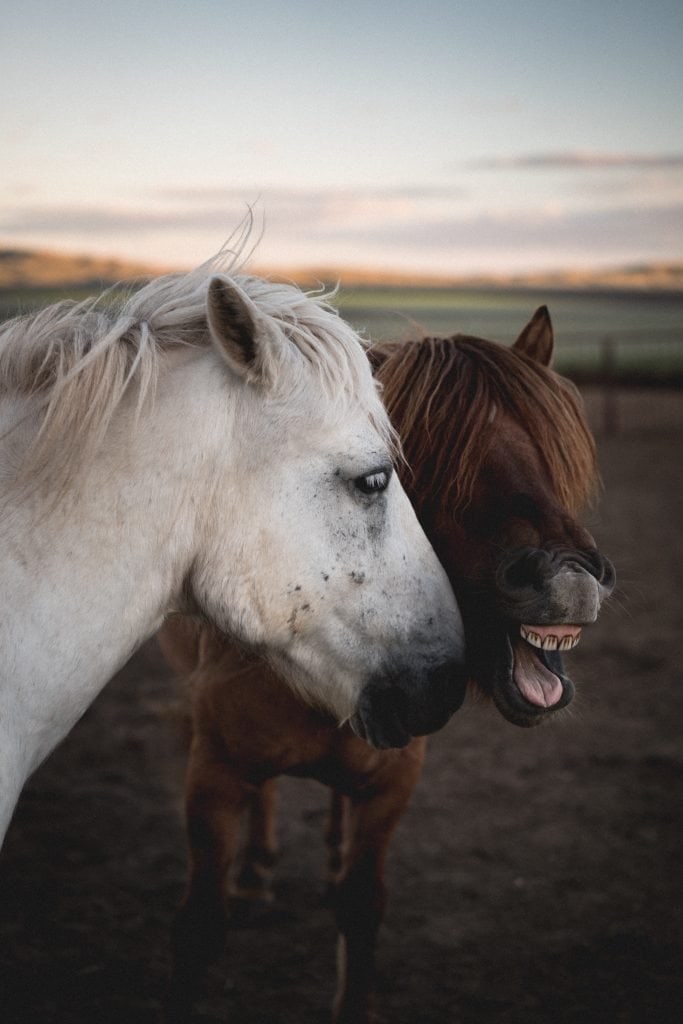
Slowing down to the pace that the mountains dictate is what allows us to witness this simple domesticity and play of family dynamics.
The tenderness and affection he bestows upon the beloved old woman are possibly my favourite features of the novel; yes, coming to terms with the inevitable ageing and passing of an elderly loved one is a universal and often used theme in literature, and, as a matter of disclosure, my own grandmother assumed the dominant mother role in my life, still, Tschinag’s depiction evokes intense emotions and heartache purely on its own merits.
A particularly beautiful passage was:
“Grandma was human silk. That’s what Father said, and what he said was always right. Always. And she had been sent to me by the sky. That’s what mother had revealed to me. Some of the things she said weren’t true of course, but when the sky was involved, we were not allowed to lie. Mother had said so herself and even Grandma had listened.”
We first see her at the start of the book being questioned by the narrator as to why she walks all the way out behind the hill to relieve herself instead of just squatting on the steppe like everyone else.
Her reply “Oh, I couldn’t do that, dear, I’m not used to squatting while people look – I could never do that!”at once brings home not just her aged vulnerability but also the character’s dignity and defiant will to do things on her own terms, the vulgar mundanity of the action coupled with the raw environment serve to weave together the comic and the tragic that will thread through the rest of the story.
Most touching, despite its grossness, is when after she loses her teeth our narrator chews her food for her. I already touched upon the way that scenery and season play a determining role in the lives and movements of the nomadic people and at times in The Blue Sky we see these natural forces personified in the figures of the imposing mountains themselves.
When his siblings have to go away to the big city our young narrator prays to the landscape to protect them “I begged the mountains, the steppe, and the sky to protect Brother and Sister from vicious and rabid dogs”.
But if the mountains and the heights are gods they are of the pagan sort, capable of harsh cruelty and far from benevolent; beings to be feared and cursed just as often as guardians to be pleaded to. We see the mother direct her fury to the clouds when a ewe escapes:
“Words came next – they poured out, one on top of the other, all aimed at the sky. It was as if Mother had grabbed the sky, as if she had grabbed this hard-hearted old father by his hair and was plucking away at him.”
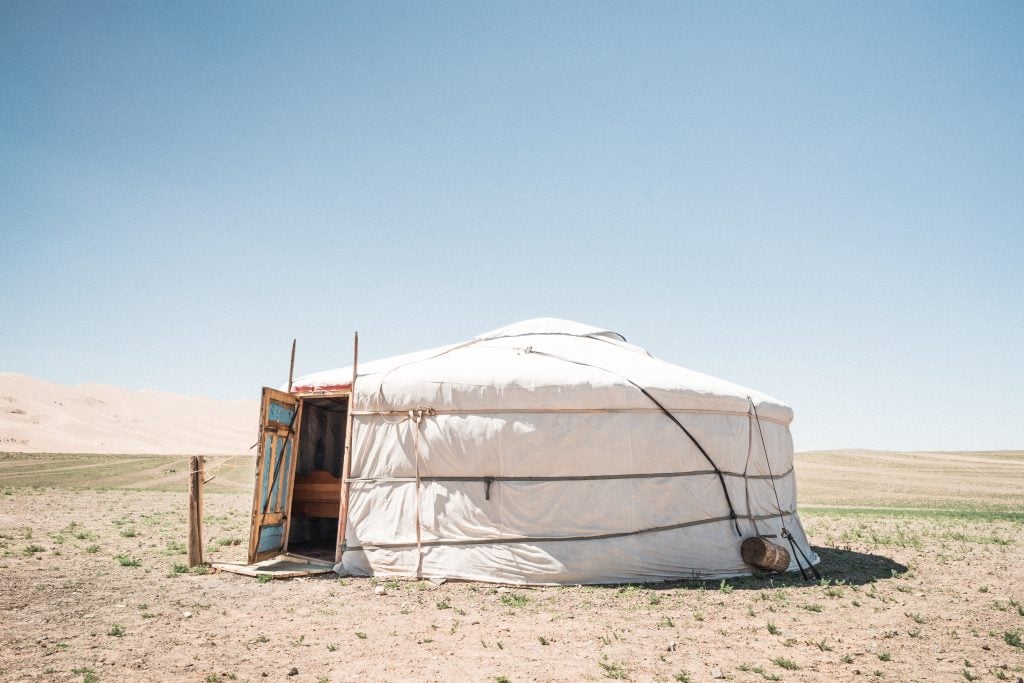
Then later, after the novel’s most calamitous event:
“I prayed to the sky, which had turned reddish and brilliant. I prayed to the breezes that filled the sky and to the winds and the clouds which, though invisible, had to be there, at rest after finishing their work high above all living beings below. I prayed to the mountain saddle Ak Gertik, which was coming toward me, to all the saddles, hills, and peaks, and to all the hollows, valleys, and gorges beyond it, naming each in due order: Saryg Gertik, Gertik, Hara Gertik, Dsher Haja, Myshyktalyyr, Gongaadaj, Dsher Aksy, Dshukschud…I prayed to the path I was treading, the path my forebears and their herds had already tread”.
As well as an insight into the beliefs and superstitions of these people it also marks the moment our young narrator truly experiences the twin cruelty and unfairness of the world, the indifference that had formerly provided the locus for transcendent epiphany now giving the youth his first experience of his powerlessness in the face of loss.
The landscape itself has undergone some of the most significant character development in the novel. The Blue Sky is a work equal parts tender, witty, sad, and vibrant. One that duly serenades the landscapes that gave birth to it and the tradition that raised it whilst retaining a wise self-awareness of its imperfections and limitations.
So far only a handful of Galsan Tschinag’s works have been translated to English, a situation which hopefully will be remedied in the coming years as The Blue Sky is as bold and fresh as the image its title conjures.



